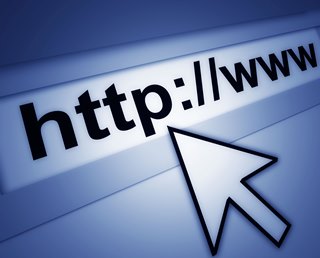The internet is such an integral part of our daily lives that we struggle to imagine life without it. To date, proliferation has largely been driven by content and speed, but we are now entering a new phase of growth where the everyday things around us will be connected to the web. This is the Internet of Things [IoT], and it will change the way we interact with our environment.
This new phase of the Internet’s growth has the potential to be a game-changer for insurance. However, in a recent survey by FC Business Intelligence, views on the IoT were mixed: 30% believe the next 12 months are critical to securing a competitive advantage, but 60% think IoT is a five-year program.
This is a little surprising. Connectivity is already common in commercial buildings and is now sweeping into homes, and it’s widely recognized as multi-trillion-dollar market.
Retailers like Lowe’s and Home Depot have entered the space, alongside service providers such as AT&T and Comcast; even utilities are starting to deploy smart home offerings for energy management. More significantly, Apple, Google and Microsoft have made big consumer bets. It may be an early market, but it has clearly arrived.
These new entrants recognize that the ability to refi ne and exploit data from devices to deploy services will be critical to their success or failure in a connected world.
Clearly, this data is going to be particularly important to insurers, who have traditionally based their pricing on understanding risk. Logically, if a competitor has better data on which to base their judgments, they will have a competitive edge. So why are few insurance companies competing in the IoT and smart home space?
There are a number of reasons, but much of it leads back to the fi ndings of the survey and the fact that they do not see the threat or opportunity. The finance sector never thought of Apple or Samsung as potential competitors, but it happened. If Apple, Google and Microsoft become the natural conduit for IoT data, could they start to bundle insurance? Could service providers who deploy solutions bundle insurance with their offerings?
Markets get disrupted all the time, but what defines companies is how they respond to threats and exploit opportunities. Long-standing, traditional industries like insurance tend to be fi xed in their ways and think they can use the established regulatory environment as a barrier for protection.
However, instead of hiding behind barriers, smart companies jump over them and embrace opportunity. Perhaps the insurance industry could use the IoT to reinvigorate an age-old model. The big question is how.
Clearly, focusing on securing data is a natural temptation, which will excite traditional actuarial teams. However, there is a bigger opportunity if they use data to reinvent how they engage with customers and generate revenues. Instead of the traditional once-ayear haggle over the cost of cover, insurers
(like other service providers) can use the IoT to bundle products and services that deliver more value and engage consumers on a daily basis. It’s a move from the traditional reactive role of underwriting risk to being proactive in helping to reduce it.
Other industries have successfully adopted these growth strategies. For example, major cable and telecom companies started to bundle smart home products on top of their broadband and entertainment services. These new products and services generated new revenue streams that leveraged their core competencies, increased loyalty and provided a springboard for new value-added services.
Research suggests that consumers view insurance companies as a logical source for products such as home automation systems bundled with new, low-cost protection for security, fi re and fl ood. Moreover, the IoT is driving exciting new innovations, such as leak detectors and temperature sensors that can
automatically shut down� the water supply when a leak is detected. So why wouldn’t insurance companies embrace the IoT?
Insurance companies will be hesitant to step outside traditional industry boundaries and deploy their own IoT services. However, if that’s a stretch, they can forge new partnerships with the companies that are deploying smart home solutions. Whatever path is chosen, insurance companies should look beyond pure data models and use the IoT to reinvent the consumer relationship by o� ering new products and services that engage consumers and move from an annual transaction to a daily interaction.
Kevin Meagher is vice president of business development for ROC-Connect.


